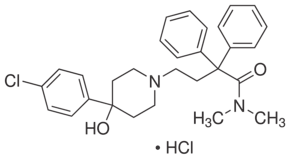Consistently, IFN-c production from CD4+ and CD8+ T cells in mesenteric lymph nodes was inhibited by bortezomib treatment. Thus, bortezomib treatment attenuated DSSinduced colitis by inhibiting excessive IFN-c production from CD4 + and CD8 + T cells. The immunoproteasome subunit  LMP7 is critical for proteasome activity, and it was recently reported that LMP7deficiency is associated with reduced severity of DSS-induced colitis in mice. Patients with inflammatory bowel disease exhibit high levels of LMP7 in the inflamed gut, and their increased proteasome activity induced by high levels of expression of immunoproteasome subunits mediates sustained activation of NF-kB. These results suggest that proteasome inhibitors may ameliorate inflammatory bowel disease. In this study, bortezomib administration substantially reduced the severity of DSS-induced colitis as well as significantly enhancing apoptosis and IkB expression of CD4 + and CD8 + T cells during DSS-induced colitis. Thus, NF-kB inhibition is likely to contribute to bortezomib-induced cell death in T cells, thereby suppressing DSS-induced colitis. Bortezomib treatment of mice with lupus-like disease significantly improves the disease severity by reducing the numbers of both CD4 + and CD8 + T cells in the spleen. Bortezomib treatment also demonstrates significant protection from acute graft-versus-host disease in a murine allogeneic bone marrow transplantation model by inhibiting allogeneic T cell proliferation. By contrast, bortezomib administration largely eliminates plasma cells but not T cells or B cells in murine models of human systemic lupus erythematosus. In the current study, bortezomib treatment reduced the numbers of CD4 + and CD8 + T cells, but not B cells or macrophages during DSS-induced colitis. It has been reported that proliferating T cells are more sensitive to Staurosporine bortezomibmediated cytotoxity than resting T cells. Proteasome inhibitors induce endoplasmic reticulum stress-induced apoptosis in multiple PCI-32765 myeloma cells as a result of the terminal unfolded protein response, while inhibition of proteasome activities by proteasome inhibitors induces apoptosis preferentially in rapid proliferating neoplastic cells. Thus, bortezomib treatment is likely to eliminate only excessively proliferating immune cells, thereby suppressing harmful inflammatory responses. Proteasome inhibition using bortezomib has recently emerged as an effective anticancer therapy. Thus far, the therapeutic feasibility of protease inhibition in inflammatory and autoimmune diseases has been revealed only in murine models of human systemic lupus erythematosus, experimental autoimmune encephalomyelitis, rheumatoid arthritis, asthma, and contact dermatitis. In the current study, bortezomib treatment in mice resulted in attenuated DSS-induced colitis, suggesting that bortezomib may also be effective for the treatment of human ulcerative colitis. Patients with this disease are generally treated with anti-inflammatory and immunosuppressive drugs, antizbiotics, and biologics such as anti-tumor necrosis factor therapies and/or surgery. However, such therapies do not cure the disease and patients suffer a life-long illness. Further studies are needed to determine the precise mechanisms by which bortezomib treatment reduces the severity of DSS-induced colitis. Nonetheless, if the efficacy seen in mice translates to humans, the current results may provide new insights and therapeutic approaches for treating ulcerative colitis.
LMP7 is critical for proteasome activity, and it was recently reported that LMP7deficiency is associated with reduced severity of DSS-induced colitis in mice. Patients with inflammatory bowel disease exhibit high levels of LMP7 in the inflamed gut, and their increased proteasome activity induced by high levels of expression of immunoproteasome subunits mediates sustained activation of NF-kB. These results suggest that proteasome inhibitors may ameliorate inflammatory bowel disease. In this study, bortezomib administration substantially reduced the severity of DSS-induced colitis as well as significantly enhancing apoptosis and IkB expression of CD4 + and CD8 + T cells during DSS-induced colitis. Thus, NF-kB inhibition is likely to contribute to bortezomib-induced cell death in T cells, thereby suppressing DSS-induced colitis. Bortezomib treatment of mice with lupus-like disease significantly improves the disease severity by reducing the numbers of both CD4 + and CD8 + T cells in the spleen. Bortezomib treatment also demonstrates significant protection from acute graft-versus-host disease in a murine allogeneic bone marrow transplantation model by inhibiting allogeneic T cell proliferation. By contrast, bortezomib administration largely eliminates plasma cells but not T cells or B cells in murine models of human systemic lupus erythematosus. In the current study, bortezomib treatment reduced the numbers of CD4 + and CD8 + T cells, but not B cells or macrophages during DSS-induced colitis. It has been reported that proliferating T cells are more sensitive to Staurosporine bortezomibmediated cytotoxity than resting T cells. Proteasome inhibitors induce endoplasmic reticulum stress-induced apoptosis in multiple PCI-32765 myeloma cells as a result of the terminal unfolded protein response, while inhibition of proteasome activities by proteasome inhibitors induces apoptosis preferentially in rapid proliferating neoplastic cells. Thus, bortezomib treatment is likely to eliminate only excessively proliferating immune cells, thereby suppressing harmful inflammatory responses. Proteasome inhibition using bortezomib has recently emerged as an effective anticancer therapy. Thus far, the therapeutic feasibility of protease inhibition in inflammatory and autoimmune diseases has been revealed only in murine models of human systemic lupus erythematosus, experimental autoimmune encephalomyelitis, rheumatoid arthritis, asthma, and contact dermatitis. In the current study, bortezomib treatment in mice resulted in attenuated DSS-induced colitis, suggesting that bortezomib may also be effective for the treatment of human ulcerative colitis. Patients with this disease are generally treated with anti-inflammatory and immunosuppressive drugs, antizbiotics, and biologics such as anti-tumor necrosis factor therapies and/or surgery. However, such therapies do not cure the disease and patients suffer a life-long illness. Further studies are needed to determine the precise mechanisms by which bortezomib treatment reduces the severity of DSS-induced colitis. Nonetheless, if the efficacy seen in mice translates to humans, the current results may provide new insights and therapeutic approaches for treating ulcerative colitis.
The volume of water intake was measured daily to determine the amount of DSS consumed per mouse
Leave a reply